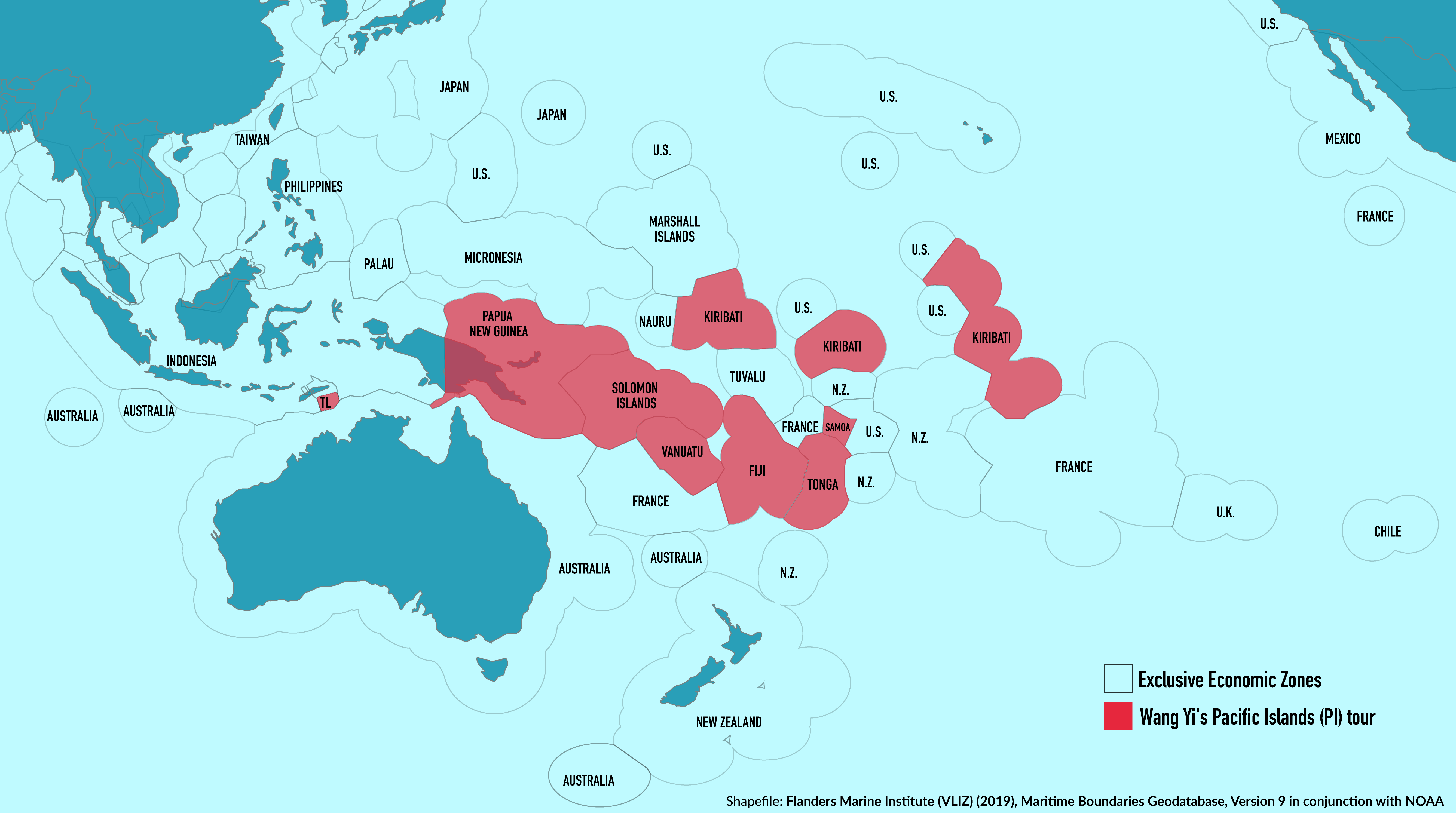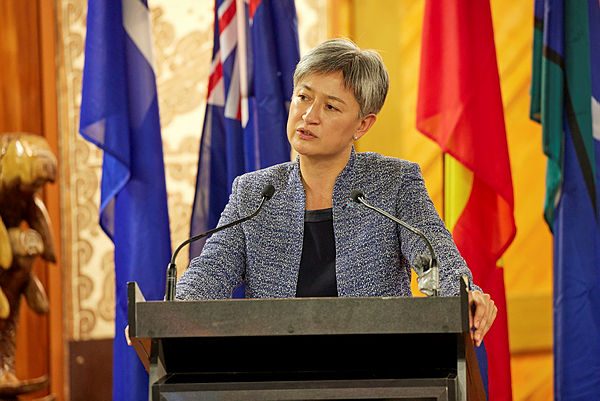Folks, just to note that this new economic and security agreement (with 10 Pacific Island states) isn't quite the same as the recent CCP/Solomon Islands agreement, for a start apparently there isn't mention of "bases" or naval ship visits in the agreement. Instead it concentrates on economic development, climate change, developing the fishing industry, education (things that many nations around the world have also signed agreements with the CCP including Western nations). But of course some of these raise some very justified concerns for example allowing better (unrestricted?) access for the CCP's huge fishing fleets and building processing factories (however will there be jobs for locals or will the CCP FIFO their own workers?) or the setting up of Confucius Institutes etc.
However the other aspects of this new economic and security deal appear quite concerning, for example mention of CCP building telecommunications and data infrastructure (expect that to be compromised, privacy wise & intelligence gathering, as well as the possibility to control these networks including turning them off etc) and some of the policing arrangements.
If it isn't happening already then the likes of US, Australia, NZ etc, need to be better informing their Pacific Island counterparts and officials of the data security concern aspects. But more needs to be done, there needs to be regular meetings/briefings with these officials and counterparts in a general sense anyway. There also then needs to be investment from the likes of US, Aust, NZ etc, in telecom/data infrastructure etc.
There also needs to be regular top level engagement with Pacific Island nations. There are already frameworks there, for example the
Pacific Island Forum, which consists of 18 members (Australia, Cook Islands, Federated States of Micronesia, Fiji, French Polynesia, Kiribati, Nauru, New Caledonia, New Zealand, Niue, Palau, Papua New Guinea, Republic of Marshall Islands, Samoa, Solomon Islands, Tonga, Tuvalu, and Vanuatu). Observer status has been granted to the likes of the U.S. territories of American Samoa, Guam, and the Northern Mariana Islands.
The key to remember that this is a forum of Pacific Islands (not necessarily and exclusively eg NZ's, or Australia's, let alone the US's (or even China's)), so it would be bad manners for the likes of Aust & NZ (or the US) to "muscle in" and tell the PIF members what to do (they need to be treated as equals not subserviently like the CCP is now doing - their arrogance is unbelievable), instead I would suggest increasing the US presence somehow (unsure if that would be directly as in direct involvement or via their US territories as proxies and perhaps Hawaii ... will leave that for the diplomats to best advise).
But also setup a second type of "forum" (or grouping etc) with the US playing a key role, the emphasis (or point of difference to the existing PI Forum) is that it it is heavily weighted in the areas of maritime (and air) domain surveillance and security, technology eg data/telecom/infrastructure aid and development (including offering educational/scholarship opportunities for Pacific Islanders to study abroad but also provide local employment opportunities to bring these people back to work in their own nations eg telecom and data industries, which would need developing.
Trade would also be key component (the CCP is proposing a Free Trade Agreement with the ten Pacific nations, which will provide benefits for the locals, but also opportunities for the CCP to better exploit their resources), the advantage of a US backed FTA type agreement is that social/environmental aspects will be better safeguarded, and critically, ensure the Pacific nations aren't totally reliant on the CCP FTA (meaning less chances of acquiescence to the CCP ... otherwise the CCP could exploit this PI block say at the UN or UNSC by having them not support (or abstain) on motions of wider geo-political significance that are against the CCP etc).
Another component could also be security related, involving the Pacific nations' miltary (or Police forces) to be better involved with eg maritime surveillance, SAR, HADR response/first responders with disaster relief provisions already on site. It could mean setting up a maritime/military type coordination centre in say Fiji for example (being the largest and somewhat centrally placed location), which would offer prestige for Fiji and people of the Pacific.
With a US led type of enhanced military cooperation Mutual Assistance Programme (with leadership/support from Australia and NZ, and possibly Japan, EU, UK etc), building upon Australia's successful and well received Pacific Patrol Boat programme, why not extend this to certain nations having basing for, for example, short/medium patrol aircraft (similar to the Australian border patrol air surveillance programme, perhaps they could lend some expertise)? So these aircraft would be operated by the Pacific Islands themselves (but perhaps with support from US/Aust/NZ personnel), perhaps as a multinational initiaitve (eg similar to how NATO shares a C-17 fleet), Training would likely occur the US or Aust or NZ (or all of them via a shared support programme which could divide up certain roles etc).
Then what about a couple of shared/multinational OPV or Coast Guard type vessels (or something like the PSV that Australia has acquired) which could range further, deliver aid, but also keep an eye and investigate CCP vessels that are reportedly surveilling (and tinkering with?) underseas data/optics cables? These are just some random ideas but as well as being "eyes on the ground or air or at sea" it also provides employment and economic development opportunities to lift what are essentially poorer nations that are reliant on tourism or aid or fishing etc to provide income for their nations.
For NZ (and Australia, as well as the US) it provides opportunities for their defence forces to be better engaged and connected to the region, via basing and support of air and sea patrol assets, and personnel training.






